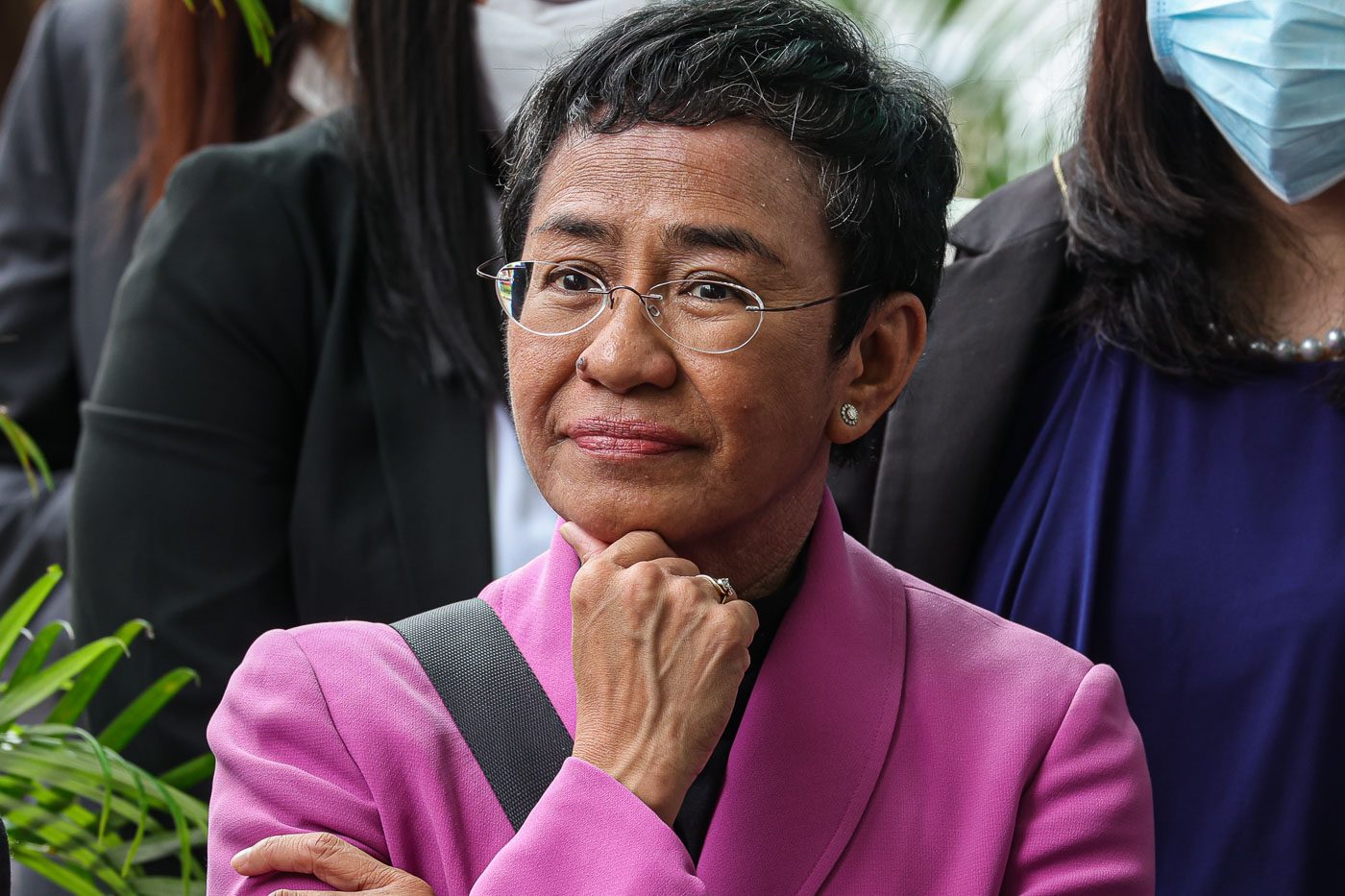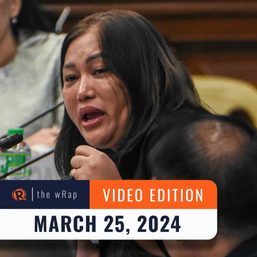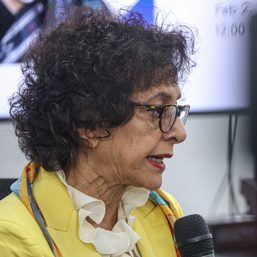SUMMARY
This is AI generated summarization, which may have errors. For context, always refer to the full article.

MANILA, Philippines – The Court of Tax Appeals (CTA) has affirmed the acquittal of Nobel Peace Prize laureate and Rappler chief executive officer Maria Ressa, and Rappler Holdings Corporation (RHC) of their tax evasion cases.
In a 11-page resolution dated May 18, the CTA’s First Division junked the prosecution’s motion for reconsideration asking the court to reconsider Ressa and RHC’s acquittal.
“From the above disquisitions, the Court finds no compelling reason to reverse nor modify the assailed Decision dated January 18, 2023,” the CTA said in its ruling. “WHEREFORE, in view of the foregoing premises, the Motion for Reconsideration filed by plaintiff on February 2, 2023 is DENIED for lack of merit. SO ORDERED.”
The latest ruling was signed by Associate Justice Catherine Manahan, with concurrences from Associate Justice Jean Marie Bacorro-Villena and Associate Justice Marian Ivy Reyes-Fajardo.
On January 18, the tax appellate court acquitted Ressa and RHC of four tax charges filed by the Rodrigo Duterte administration. The charges alleged that Ressa and RHC evaded tax payments when the latter raised capital through a partnership with foreign investors North Base Media and Omidyar Network.
In its decision, the CTA handed down the acquittal for “failure of the prosecution to prove their guilt beyond reasonable doubt.” Days after the acquittal, on February 2, the prosecutors asked the CTA to reconsider its decision through a motion for reconsideration.
The CTA’s First Division, in its ruling denying the prosecution’s motion for reconsideration, said it adheres to the principle of finality-of-acquittal, which means that a judgment of acquittal can no longer be considered. This is because it violates the constitutional provision against double jeopardy, provided in section 21, Article III, of the 1987 Constitution, the court said.
On double jeopardy
In its ruling, the CTA also noted that jurisprudence or previous court decisions said that “no person shall be twice put in jeopardy of punishment for the same offense.” The court mentioned the case of Lejano vs. People, which says that to reconsider an acquittal means putting the accused twice in jeopardy of being punished for the crime he/ she has already been acquitted.
But the same jurisprudence also set the exception in challenging an acquittal, and said a motion for reconsideration is possible after a judgment of acquittal. However, the exception is narrow because the only exception is this:
“Case law provides only one exception to the finality- of-acquittal doctrine, i.e., when the trial court has acted with grave abuse of discretion amounting to lack or excess of jurisdiction such as where the prosecution was denied the opportunity to present its case or where the trial was a sham, thus, rendering the assailed judgment void,” the Estate of Williams vs. Percy case states.
The CTA said “none of the exceptions are obtaining” in Ressa and RHC’s cases, adding that a full-blown trial was conducted, where the prosecution and the accused were given opportunity to present their evidence.
“The Court in its eighty-one (81) paged decision dated January 18, 2023, had comprehensively reviewed, analyzed and appreciated all of the said evidence in coming up with the decision to acquit the accused, hence it is safe to assume that the trial conducted is not a sham nor was there a mistrial that would render the judgment void,” the CTA said.
On civil liability
The prosecution, in their motion, also alleged that Ressa and RHC should be held liable for civil liability by paying the alleged deficiency in income tax and value added tax for taxable year 2015. Citing Dy vs. People, the prosecution asserted that civil liability survives an acquittal in a criminal case – and the CTA agreed.
However, the CTA noted there is an exception to this, as also stated in the Daluraya case: “However, the civil action based on delict may be deemed extinguished if there is a finding on the final judgment in the criminal action that the act or omission from which the civil liability may arise did not exist or where the accused did not commit the acts or omissions imputed to him.”
The CTA said since Ressa and RHC were not found liable for the alleged tax deficiencies, no civil liability may be imposed on them. The court added that Ressa and RHC’s case also falls in the exception rule on civil liability.
SC allows Ressa to travel
In a different resolution, the Supreme Court’s First Division allowed Ressa to travel abroad from June 4 to 29 for speaking engagements, but with certain conditions.
The SC ordered Ressa to observe the sub judice rule or to avoid discussing in public her pending libel case. Ressa was also asked to travel with a cash bond of P100,000. – Rappler.com
Add a comment
How does this make you feel?
















![[OPINION] De-weaponizing tax laws: Upholding press freedom and economic growth](https://www.rappler.com/tachyon/2023/10/tl-upholding-press-freedom-economic-growth.jpg?resize=257%2C257&crop_strategy=attention)
There are no comments yet. Add your comment to start the conversation.